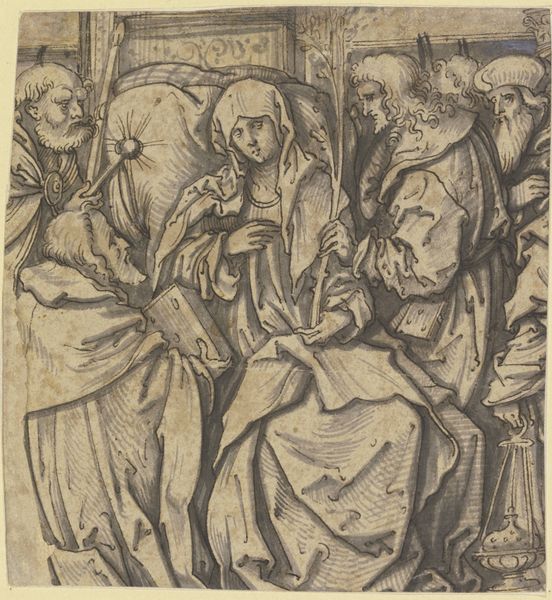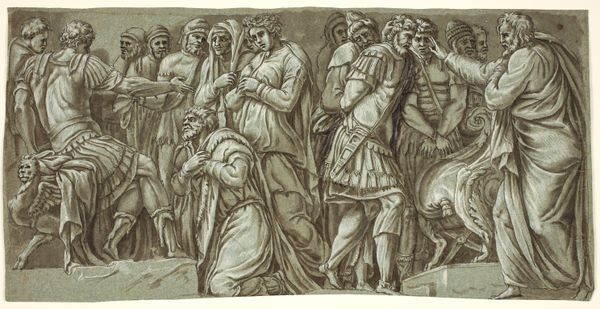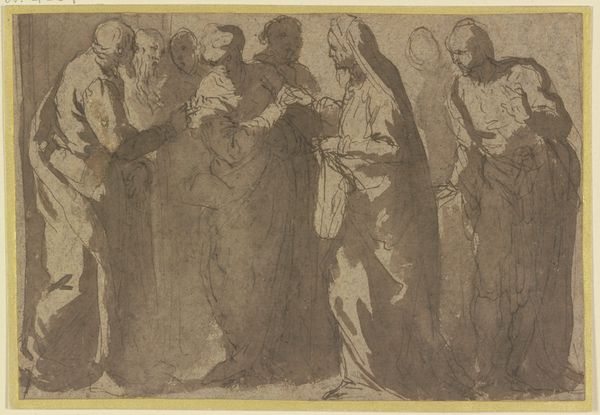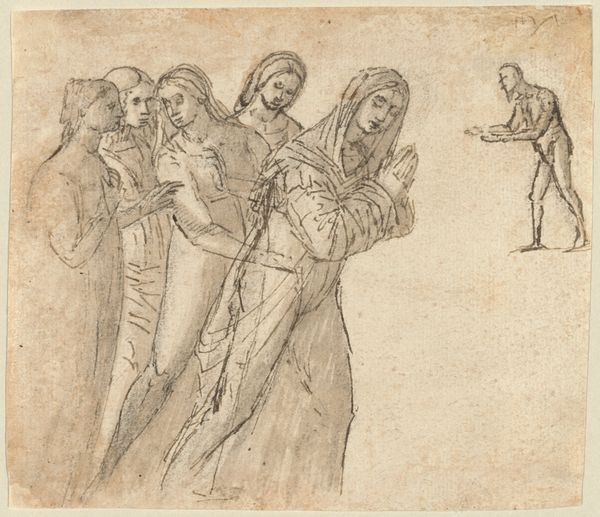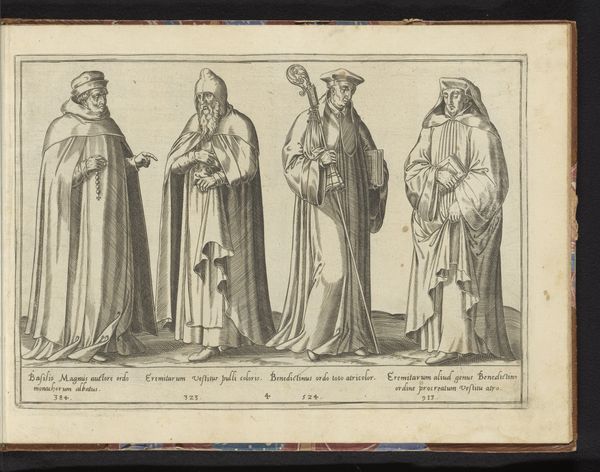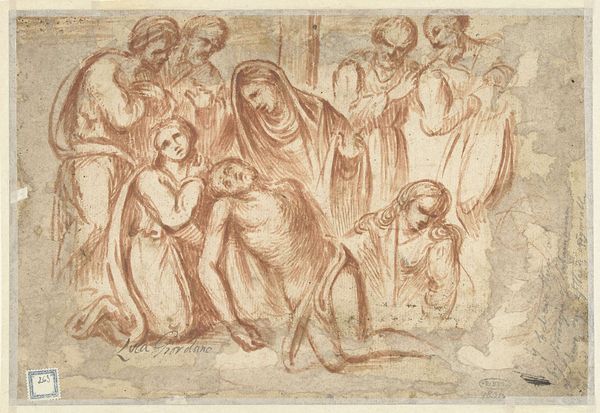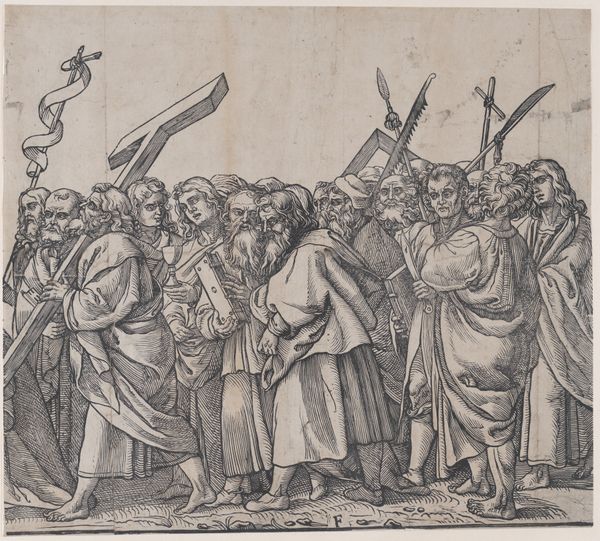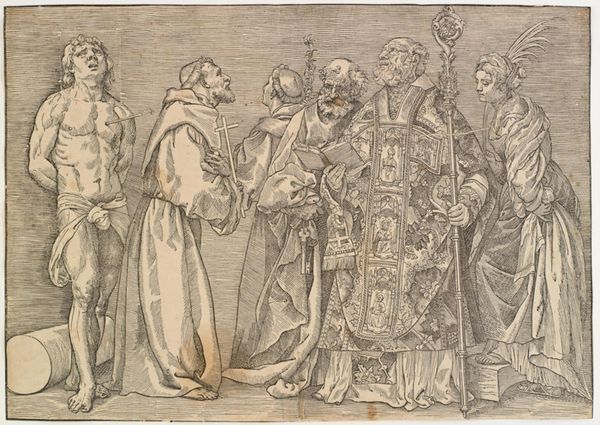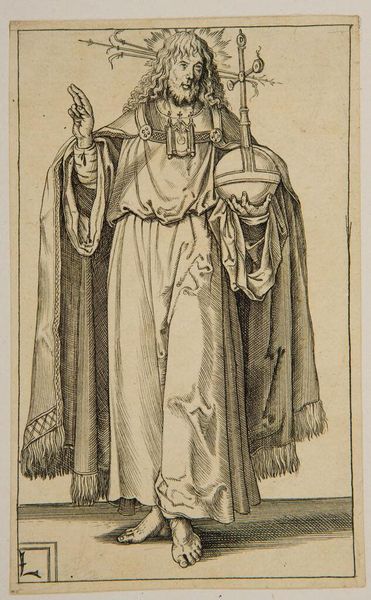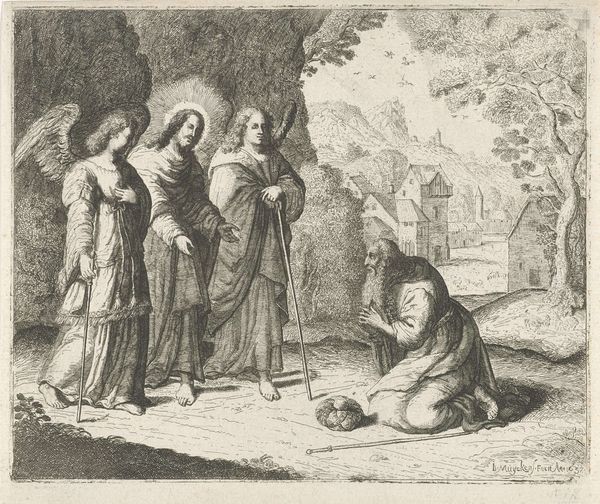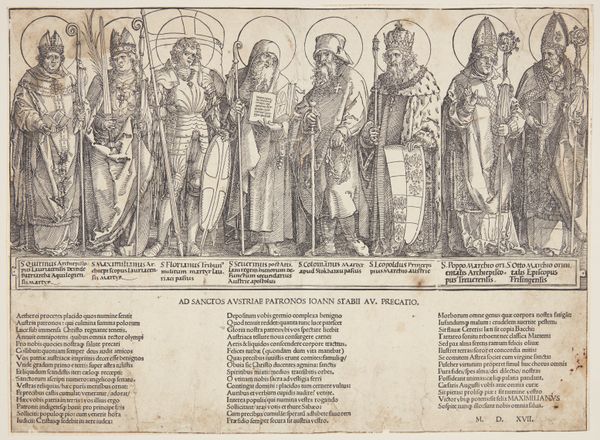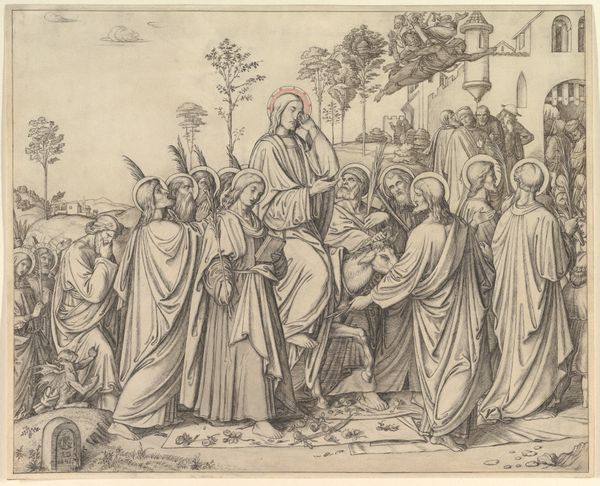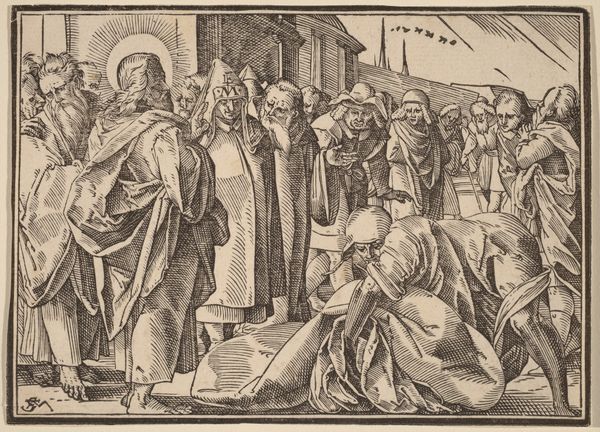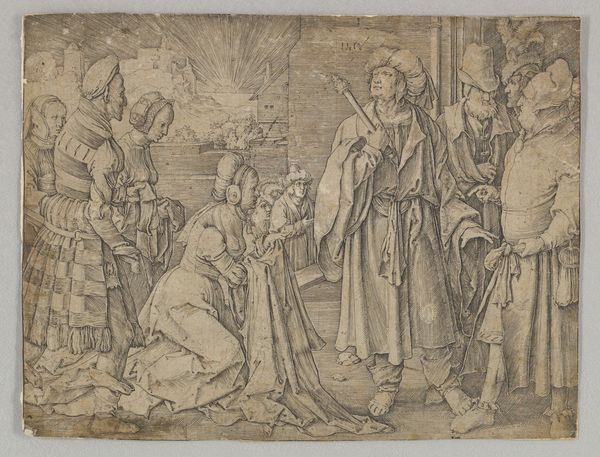
Die Heiligen Filippo Neri, Ignacio de Loyola, Francisco de Javier, Isidor von Madrid und Teresa de Jesús von fünf Engeln begleitet c. 1622
0:00
0:00
drawing, ink, indian-ink, chalk
#
drawing
#
aged paper
#
toned paper
#
light pencil work
#
pencil sketch
#
sketch book
#
personal sketchbook
#
ink
#
indian-ink
#
pen-ink sketch
#
13_16th-century
#
chalk
#
pen work
#
14_17th-century
#
sketchbook art
#
pencil art
Copyright: Public Domain
Editor: This is Gian Antonio Burrini's drawing, "Die Heiligen Filippo Neri, Ignacio de Loyola, Francisco de Javier, Isidor von Madrid und Teresa de Jesùs von fünf Engeln begleitet," created around 1622. The sepia tones, rendered in ink, chalk and pencil, lend it an air of antiquity. What do you see in this piece? Curator: For me, it's a fascinating insight into the material culture of religious representation in the 17th century. Burrini's choice of relatively inexpensive materials - ink, chalk and pencil on paper, as opposed to, say, oil on canvas or fresco - suggests a study or preparatory sketch, indicative of the workshop practices of the time. The labor involved in creating such a detailed study is evident, pointing to a system where artistic skill was valued, yet its products remained accessible. Do you think the choice of materials influences how we perceive the subject matter? Editor: That's an interesting perspective! I hadn't considered the economics of the materials themselves. I guess, subconsciously, seeing it rendered in a 'humble' medium changes the way it feels to view the saints. What about the aged quality of the paper itself? Curator: Exactly! The "aged paper" – its inherent material history and social context – creates a dialogue with the portrayed Saints. It speaks to the passage of time, reminding us of the artwork's enduring nature, how production materials evolve into collectables, and inviting the public into the space. It is really captivating! What's your main takeaway? Editor: I've definitely gained a new appreciation for the role of materials and the means of production in shaping our understanding of art and society, from process to product. Thanks! Curator: It’s been enlightening discussing the materiality behind artistic vision and the impact of production in Burrini's sketch.
Comments
No comments
Be the first to comment and join the conversation on the ultimate creative platform.
